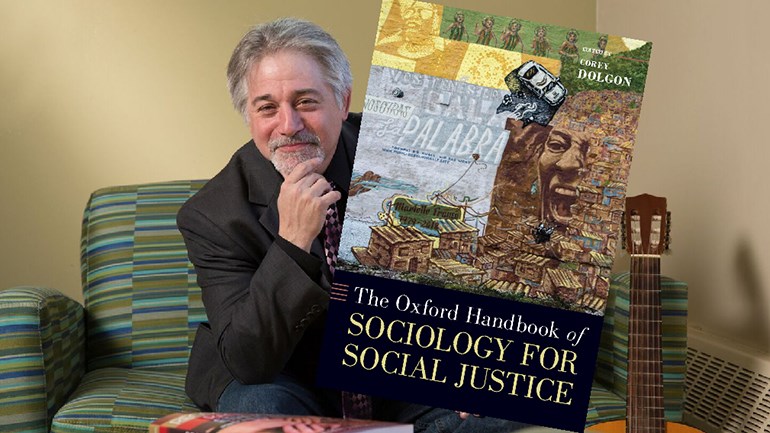FACULTY OF CULTURE AND SOCIETY | Lecture
American Fascism, Anti-Fascism and its Global Implications
Wednesday 4 June, 15:15 - 17:00
Niagara, auditorium B1, Nordenskiöldsgatan 1

Guest lecture by Corey Dolgon
Corey Dolgon is professor in Sociology at Stonehill College, USA.
The historical foundations of american fascism
For a country supposedly born free (in the words of Political Scientist, Louis Hartz) where Fascism could "never happen", Fascism has actually been a part of the national DNA of the US since the nations's inception.Its manifestation, however, has rarely been this bold. In part, this presentation will look at the historical roots of our fascist elements—what Henry Giroux has called our "proto-fascism.
As historian Robert Paxton wrote, there would be "No swastikas in an American fascism, but Stars and Stripes and Christian crosses. No fascist salute, but recitations of the pledge of allegiance...These symbols contain no whiff of fascism in themselves, but an American fascism would transform them into an obligatory litmus test for detecting the internal enemy."
Thus, I will look at how this history has metamorphosed into a powerful fascist moment for the nation and how that relates to a similar fascist moment developing around the world. Finally, I want to look at America's anti-fascist movement and its potential as a national and global strategy for resistance and a new vision of liberation.
About professor Dolgon
Professor Dolgon is the editor of The Oxford Handbook of Sociology for Social Justice (2024). He has previously published The End of the Hamptons: Scenes from the Class Struggle in American’s Paradise (2005) and Kill it to Save it: An Autopsy of Capitalism’s triumph Over Democracy (2017). His current book, American Fascism, will be published by New York University Press.
About the lecture
This lecture is part of the series Open Urban Seminars, organised by the Department of Urban Studies and the Institute for studies in Malmö’s History, Malmö University. There will be fika. Most welcome!
